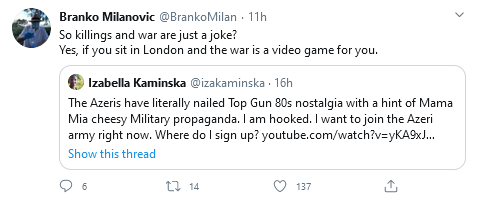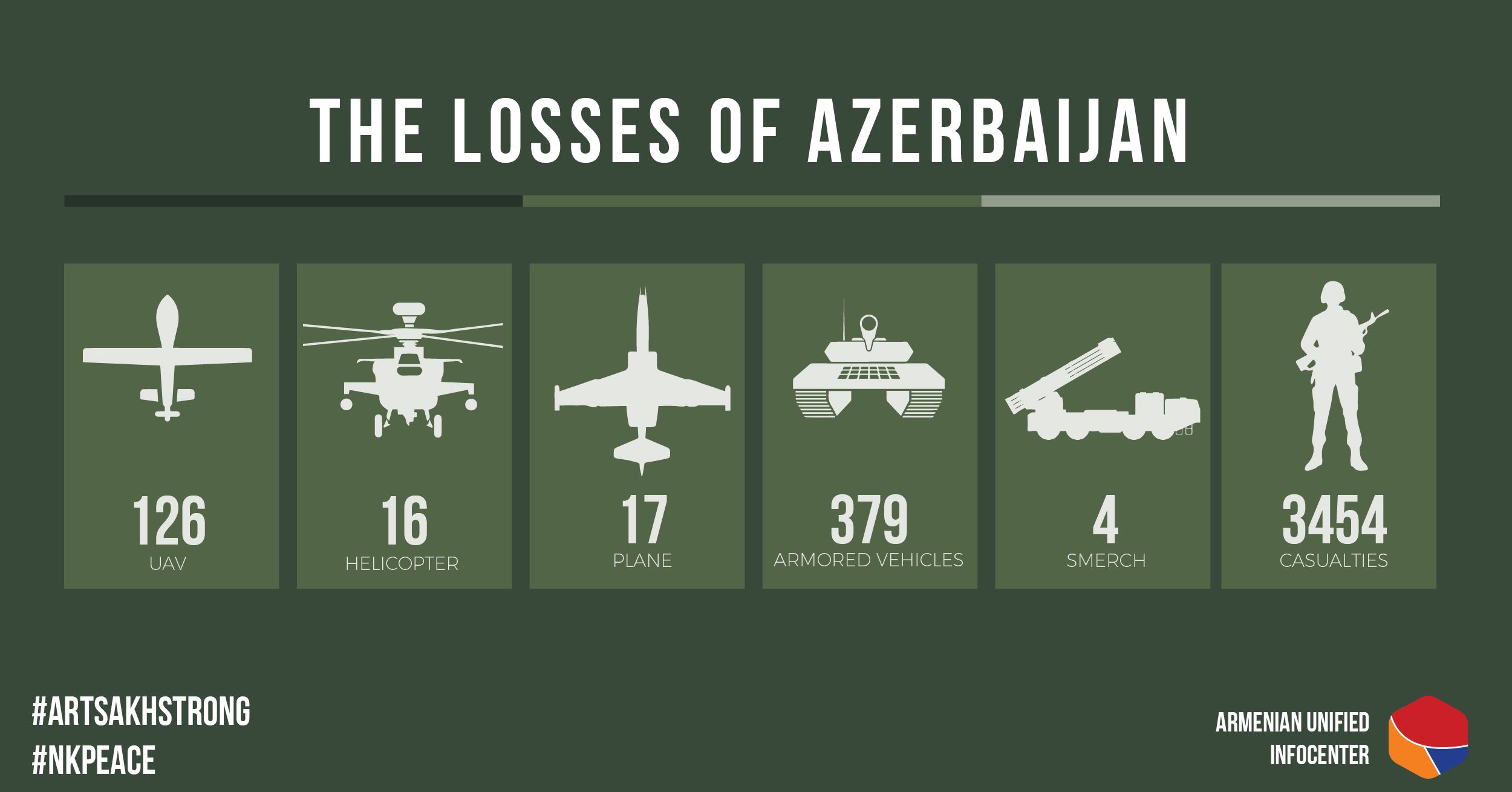Stižu dolari
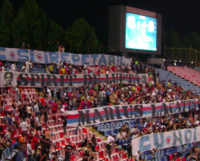
- Posts : 28265
Join date : 2015-03-20
- Post n°101
 Re: Stižu dolari
Re: Stižu dolari
pa baš zato, od ovog neće biti jeftinije prilike
_____
#FreeFacu
Дакле, волео бих да се ЈСД Партизан угаси, али не и да сви (или било који) гробар умре.

- Posts : 52531
Join date : 2017-11-16
- Post n°102
 Re: Stižu dolari
Re: Stižu dolari
Jermenija je clan ODKB. To ne pokriva N.Karabah, ali ako ga Azeri povrate...
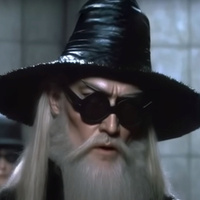
- Posts : 8696
Join date : 2016-10-04
- Post n°103
 Re: Stižu dolari
Re: Stižu dolari
Шибају се жестоко већ скоро недељу дана, али нема већег помака на линији фронта. Азери су добили од Турака беспилотне и ноу-хау из Сирије и Либије, и успешно нападају положаје ПВО и појединачне мете.
Јермени одлични у шорци изблиза, још јаче ударају него Азери. Тешке борбе, десетине па и стотине погинулих војника дневно. Такође и гомила војне технике. На дужи рок тешко подношљиво обема странама.
Врло занимљив сукоб који показује како ће моћи да се одвијају будући ратови. БПЛ су корисне, али још нису оруђе које само добија рат.
Питање је како ће моћи да се преломи на даље. Ако Јермени добију ефикасну опрему против БПЛ, моћи ће да пониште предност Азера и врате се у пат позицију.
Са друге стране, дужи сукоб би Азери лакше поднели, чак и да недељама трпе дупло веће губитке на крају ће добити на исцрпљивање.
Али како је и међународна заједница изразила забринутост, можда ће наћи неки начин да обуставе операције. Надам се овоме. Звецка се са пуно оружја, гине пуно војника по вукојебинама. Кад дођу до насељених места може бити стравично по цивиле.
Јермени одлични у шорци изблиза, још јаче ударају него Азери. Тешке борбе, десетине па и стотине погинулих војника дневно. Такође и гомила војне технике. На дужи рок тешко подношљиво обема странама.
Врло занимљив сукоб који показује како ће моћи да се одвијају будући ратови. БПЛ су корисне, али још нису оруђе које само добија рат.
Питање је како ће моћи да се преломи на даље. Ако Јермени добију ефикасну опрему против БПЛ, моћи ће да пониште предност Азера и врате се у пат позицију.
Са друге стране, дужи сукоб би Азери лакше поднели, чак и да недељама трпе дупло веће губитке на крају ће добити на исцрпљивање.
Али како је и међународна заједница изразила забринутост, можда ће наћи неки начин да обуставе операције. Надам се овоме. Звецка се са пуно оружја, гине пуно војника по вукојебинама. Кад дођу до насељених места може бити стравично по цивиле.

- Posts : 52531
Join date : 2017-11-16
- Post n°104
 Re: Stižu dolari
Re: Stižu dolari
https://twitter.com/simulacrax/status/1311772844364361728?s=19
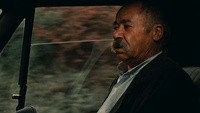
- Posts : 11623
Join date : 2018-03-03
Age : 36
Location : Hotline Rakovica
- Post n°105
 Re: Stižu dolari
Re: Stižu dolari
Rumors are swirling in #Azerbaijan that General Chief of Staff of the Armed Forces Nəcməddin Sadıqov has been detained on the grounds of being a Russian asset, arrested by intelligence after a tip off from Turkish intelligence. He is accused of giving coordinates to the Armenians pic.twitter.com/efWPcrDl61
— NVD (@notvladedivac) October 2, 2020
_____
Sve čega ima na filmu, rekao sam, ima i na Zlatiboru.
~~~~~
Ne dajte da vas prevare! Sačuvajte svoje pojene!

- Posts : 41623
Join date : 2012-02-12
Location : wife privilege
- Post n°106
 Re: Stižu dolari
Re: Stižu dolari
Иначе пада легенда по којој Јермени не би могли да погоде ваздух са два метра, него мора да им је неко офирао координате, а?
_____
cousin for roasting the rakija
И кажем себи у сну, еј бре коњу па ти ни немаш озвучење, имаш оне две кутијице око монитора, видећеш кад се пробудиш...

- Posts : 41623
Join date : 2012-02-12
Location : wife privilege
- Post n°108
 Re: Stižu dolari
Re: Stižu dolari
Чекај, "општи поглавица особља" му дође шеф генералштаба, а не генерал који је у генералштабу. Невероватно.
_____
cousin for roasting the rakija
И кажем себи у сну, еј бре коњу па ти ни немаш озвучење, имаш оне две кутијице око монитора, видећеш кад се пробудиш...

- Posts : 52531
Join date : 2017-11-16
- Post n°109
 Re: Stižu dolari
Re: Stižu dolari
Pametni ljudi su odavno rekli da Turci i Rusi prosto nisu prirodni saveznici

- Posts : 11623
Join date : 2018-03-03
Age : 36
Location : Hotline Rakovica
- Post n°110
 Re: Stižu dolari
Re: Stižu dolari
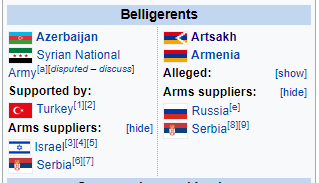
:ljaksofon:
_____
Sve čega ima na filmu, rekao sam, ima i na Zlatiboru.
~~~~~
Ne dajte da vas prevare! Sačuvajte svoje pojene!

- Posts : 82754
Join date : 2012-06-10
- Post n°111
 Re: Stižu dolari
Re: Stižu dolari
_____
"Oni kroz mene gledaju u vas! Oni kroz njega gledaju u vas! Oni kroz vas gledaju u mene... i u sve nas."
Dragoslav Bokan, Novi putevi oftalmologije

- Posts : 11623
Join date : 2018-03-03
Age : 36
Location : Hotline Rakovica
- Post n°112
 Re: Stižu dolari
Re: Stižu dolari

_____
Sve čega ima na filmu, rekao sam, ima i na Zlatiboru.
~~~~~
Ne dajte da vas prevare! Sačuvajte svoje pojene!

- Guest
- Post n°114
 Re: Stižu dolari
Re: Stižu dolari
Nagorno-Karabagh | Joint statement by the Ministers of Foreign Affairs of France
— France Diplomacy, the Russian Federation
, and the Secretary of State of the USA
, Co-Chair countries of the OSCE Minsk Group
https://t.co/nh2DFZe6d8 pic.twitter.com/KK35tgES45
(@francediplo_EN) October 5, 2020
Kad zajedno zagrme Francsuka, Rusija i Amerika, dešava se, pa, ništa posebno....

- Posts : 1037
Join date : 2017-10-28
- Post n°116
 Re: Stižu dolari
Re: Stižu dolari
Malo miriše na neštelovanu propagandicu.

- Posts : 41623
Join date : 2012-02-12
Location : wife privilege
- Post n°117
 Re: Stižu dolari
Re: Stižu dolari
Their casualties look so casual.
_____
cousin for roasting the rakija
И кажем себи у сну, еј бре коњу па ти ни немаш озвучење, имаш оне две кутијице око монитора, видећеш кад се пробудиш...

- Guest
- Post n°118
 Re: Stižu dolari
Re: Stižu dolari
Pogled iz Gruzije na širu pozadinu sukoba:
Opinion | With Belligerent Ankara, Russia’s Global Ambitions Hit a Regional Snag
04/10/2020 - 15:18 901 5 minutes read
Jaba Devdariani
is Civil.ge soliciting editor, ex-diplomat and human rights officer with ten years of experience in the OSCE.
Ever since President Vladimir Putin has announced Russia “raising from its knees”, its geopolitical assertiveness was aimed as a global challenge to the established international order, epitomized by the erstwhile Cold War enemy, the United States and, by extension, the European Union. But the unraveling of that international order has also undone the restraints that kept the regional rivalries in check. This reality is now coming to roost in Russia’s own neighborhood, as it finds itself increasingly short of options facing a belligerent Turkey in the deadly Nagorno-Karabakh escalation.
Many observers have noted that the Kremlin “returned to global politics” mostly as a spoiler. This low-cost/high-rewards affair was based on the assumption that most of its rivals – in Syria, Ukraine or, say, Venezuela – would consider themselves bound by the restrictions and the conventions characteristic to the same international order that Russia sought to undo.
Russia needed and used its newly sought status of the “great power” to lay a claim on its neighborhood. By the rules of the 19th-century “concert” diplomacy, which the Kremlin seems to use as its mental blueprint for international affairs, any great power worth its salt must act as a hegemon in its own region and fight the attempts of encroachment by the others. The Kremlin paranoia about so-called “color revolutions” and the fears of “encirclement” draw as much on this 19th-century colonial logic as on the Kennan’s famous “long telegram,” that set the principles of containment against the USSR.
If Moscow has been punching above its real economic, diplomatic, and military weight, it was mostly to secure this regional privilege. But at least one challenger, Turkey, apparently saw Russia for what it really is – a middling regional power. Under the leadership of Recep Tayyip Erdoğan Turkey is as prone as Russia to see the clock set back to the pre-WWI times. Just as back then, Russia and Turkey may be situational allies but are constantly angling for advantage against each other in their border hinterlands.
Ankara accepts and shares Moscow’s formula of the Western duplicity in applying the standards they preach. Just like Putin, President Erdoğan is prone to reach back to the imperial past and traditional, religiously tinted values, as a counterweight to the liberal and democratic principles. Yet this very convergence of ideas inevitably sets the two capitals apart as traditional competitors.
Less troubled by the fantom of the global domination than Moscow, Ankara has calibrated its targets closer to home and in so doing seems to have caught Russia off guard. Turkey has now called Russia out, daring it to show its great-power mettle in an extremely sensitive region.
These days it is often said that Nagorno-Karabakh is one of the oldest simmering conflicts. It is indeed the first inter-state conflict that Russia has dealt with in post-Soviet space. The fragile balance it brought has cemented the geopolitical configuration, where Armenia became Russia’s primary regional ally. It has also aligned Azerbaijan economically with Turkey. Until recently, Azerbaijan and Turkey – as a NATO member and Western ally – were anchoring the region into wider Europe – an important variable that brought Georgia along as a willing collaborator.
While Turkey was taking on the role of the key U.S. ally and the NATO partner in the region, its involvement in South Caucasus conflicts was constrained by this status. Ankara’s rhetoric of support to the territorial integrity of both Georgia and Azerbaijan has been mostly diplomatic. Military cooperation with Azerbaijan – although significant – was businesslike: Ankara sold arms to Baku, awash with petrodollars, just as Moscow did the same.
But the conflict in Syria and the refugee crisis have distanced Ankara both from Washington and the Brussels. Now unshackled from these alliances, Turkey is setting a much more belligerent tone and seems to be playing the military role above and beyond what seemed imaginable only three years ago.
Russia’s Nagorno-Karabakh policy has been based on keeping the forces balanced and the conflict frozen. Azerbaijan’s willingness to go through with the military operation and Turkey’s vocal and unconditional support to this military adventure leave Moscow crucially short of options. It can and most likely will protect Armenia proper from an Azerbaijani attack. But it will be loth to deploy its own troops to oppose Azerbaijani (and, potentially, Turkish) forces on the ground. If it did choose that course of action, it would wreck the profitable relationship with Baku and also alienate the Central Asian states.
This brings us to a second, security conundrum. In opposing the Western institutions, Russia still sought to mirror them with its own. CSTO copies many of NATO’s tenets, just like the Eurasian Economic Union is structured around EU blueprint. Ironically, CSTO is now finding itself facing the NATO’s “Article 5 dilemma” – if Armenia calls on CSTO for protection in vain, the value of the alliance and the credibility of its leading power, Russia, will be greatly diminished. Yet, it is clear, that the Central Asian states will not engage in the Nagorno-Karabakh conflict, while Belarus has other preoccupations at this point than sending its troops to fight in the Caucasus.
The Kremlin thus finds itself at a strategic, even philosophical junction. It can uphold its status of international power and enter an alliance with the Western actors in seeking peace in Nagorno-Karabakh. This would dovetail with, for example, French President Emmanuel Macron’s notion of “security dialogue” with Russia and give Moscow a chance to act as a constructive actor, for once.
Yet, regionally, such a decision will run counter Moscow’s doctrine of keeping the Western actors and international organizations off the ground in its own neighborhood. Indeed, following the 2008 war in Georgia, Russia has succeeded to keep South Caucasus free of any international presence, by stamping out the engagement of the UN in Abkhazia, OSCE in Tskhinvali Region/South Ossetia, and acquiescing to (although not initiating) the closure of OSCE offices in Baku (2015) and Yerevan (2017).
Moreover, engaging as a Western partner would probably mean accepting the very tenets of the multilateral international order that Russia so consistently tried to unravel during these past years. Its commitments are likely to come at the price of following the rules also in Ukraine, Georgia, and elsewhere.
All these considerations seem to be leading the Kremlin into a near paralysis as the combat in Nagorno-Karabakh continues. Moscow’s best hope is that Azerbaijan’s offensive drive will peter out soon, opening the door to negotiation. But the degree of rhetorical engagement both from Baku and Ankara makes the climb down without a major military success highly unlikely.
With every new day of combat, Moscow’s stock as the neighborhood bully is falling. The void in regional security architecture opens up, bringing about the prospect of lasting regional instability, characterized by “hot” proxy conflict and reconfiguration of alliances.
https://civil.ge/archives/373037

- Guest
- Post n°119
 Re: Stižu dolari
Re: Stižu dolari
#BREAKING Armenia ready for 'mutual concessions' with Azerbaijan on Karabakh: PM to AFP

- Posts : 28265
Join date : 2015-03-20
- Post n°120
 Re: Stižu dolari
Re: Stižu dolari
prc
_____
#FreeFacu
Дакле, волео бих да се ЈСД Партизан угаси, али не и да сви (или било који) гробар умре.

- Posts : 11623
Join date : 2018-03-03
Age : 36
Location : Hotline Rakovica
- Post n°121
 Re: Stižu dolari
Re: Stižu dolari
Toliko o taktičkom povlačenju. Dronovi dobiše rat, jebi ga.
_____
Sve čega ima na filmu, rekao sam, ima i na Zlatiboru.
~~~~~
Ne dajte da vas prevare! Sačuvajte svoje pojene!

- Guest
- Post n°122
 Re: Stižu dolari
Re: Stižu dolari
Ne znači ovo ništa, to je trajna pozicija Jerevana koju je Pašinjan samo ponovio.
Što ne znači da Polip u osnovi nije u pravu.
Što ne znači da Polip u osnovi nije u pravu.
Yerevan is ready to make concessions in the conflict over Nagorno-Karabakh in case of similar readiness on the part of Azerbaijan, Armenian Prime Minister Nikol Pashinyan said.
"Conflicts need to be resolved on the basis of mutual concessions. Nagorno-Karabakh is ready, and Armenia is ready, to mirror the concessions that Azerbaijan is ready to make", Pashinyan told AFP in an interview.

- Posts : 52531
Join date : 2017-11-16
- Post n°123
 Re: Stižu dolari
Re: Stižu dolari
buffalo bill wrote:Pogled iz Gruzije na širu pozadinu sukoba:
Opinion | With Belligerent Ankara, Russia’s Global Ambitions Hit a Regional Snag
04/10/2020 - 15:18 901 5 minutes read
Jaba Devdariani
is Civil.ge soliciting editor, ex-diplomat and human rights officer with ten years of experience in the OSCE.
Ever since President Vladimir Putin has announced Russia “raising from its knees”, its geopolitical assertiveness was aimed as a global challenge to the established international order, epitomized by the erstwhile Cold War enemy, the United States and, by extension, the European Union. But the unraveling of that international order has also undone the restraints that kept the regional rivalries in check. This reality is now coming to roost in Russia’s own neighborhood, as it finds itself increasingly short of options facing a belligerent Turkey in the deadly Nagorno-Karabakh escalation.
Many observers have noted that the Kremlin “returned to global politics” mostly as a spoiler. This low-cost/high-rewards affair was based on the assumption that most of its rivals – in Syria, Ukraine or, say, Venezuela – would consider themselves bound by the restrictions and the conventions characteristic to the same international order that Russia sought to undo.
Russia needed and used its newly sought status of the “great power” to lay a claim on its neighborhood. By the rules of the 19th-century “concert” diplomacy, which the Kremlin seems to use as its mental blueprint for international affairs, any great power worth its salt must act as a hegemon in its own region and fight the attempts of encroachment by the others. The Kremlin paranoia about so-called “color revolutions” and the fears of “encirclement” draw as much on this 19th-century colonial logic as on the Kennan’s famous “long telegram,” that set the principles of containment against the USSR.
If Moscow has been punching above its real economic, diplomatic, and military weight, it was mostly to secure this regional privilege. But at least one challenger, Turkey, apparently saw Russia for what it really is – a middling regional power. Under the leadership of Recep Tayyip Erdoğan Turkey is as prone as Russia to see the clock set back to the pre-WWI times. Just as back then, Russia and Turkey may be situational allies but are constantly angling for advantage against each other in their border hinterlands.
Ankara accepts and shares Moscow’s formula of the Western duplicity in applying the standards they preach. Just like Putin, President Erdoğan is prone to reach back to the imperial past and traditional, religiously tinted values, as a counterweight to the liberal and democratic principles. Yet this very convergence of ideas inevitably sets the two capitals apart as traditional competitors.
Less troubled by the fantom of the global domination than Moscow, Ankara has calibrated its targets closer to home and in so doing seems to have caught Russia off guard. Turkey has now called Russia out, daring it to show its great-power mettle in an extremely sensitive region.
These days it is often said that Nagorno-Karabakh is one of the oldest simmering conflicts. It is indeed the first inter-state conflict that Russia has dealt with in post-Soviet space. The fragile balance it brought has cemented the geopolitical configuration, where Armenia became Russia’s primary regional ally. It has also aligned Azerbaijan economically with Turkey. Until recently, Azerbaijan and Turkey – as a NATO member and Western ally – were anchoring the region into wider Europe – an important variable that brought Georgia along as a willing collaborator.
While Turkey was taking on the role of the key U.S. ally and the NATO partner in the region, its involvement in South Caucasus conflicts was constrained by this status. Ankara’s rhetoric of support to the territorial integrity of both Georgia and Azerbaijan has been mostly diplomatic. Military cooperation with Azerbaijan – although significant – was businesslike: Ankara sold arms to Baku, awash with petrodollars, just as Moscow did the same.
But the conflict in Syria and the refugee crisis have distanced Ankara both from Washington and the Brussels. Now unshackled from these alliances, Turkey is setting a much more belligerent tone and seems to be playing the military role above and beyond what seemed imaginable only three years ago.
Russia’s Nagorno-Karabakh policy has been based on keeping the forces balanced and the conflict frozen. Azerbaijan’s willingness to go through with the military operation and Turkey’s vocal and unconditional support to this military adventure leave Moscow crucially short of options. It can and most likely will protect Armenia proper from an Azerbaijani attack. But it will be loth to deploy its own troops to oppose Azerbaijani (and, potentially, Turkish) forces on the ground. If it did choose that course of action, it would wreck the profitable relationship with Baku and also alienate the Central Asian states.
This brings us to a second, security conundrum. In opposing the Western institutions, Russia still sought to mirror them with its own. CSTO copies many of NATO’s tenets, just like the Eurasian Economic Union is structured around EU blueprint. Ironically, CSTO is now finding itself facing the NATO’s “Article 5 dilemma” – if Armenia calls on CSTO for protection in vain, the value of the alliance and the credibility of its leading power, Russia, will be greatly diminished. Yet, it is clear, that the Central Asian states will not engage in the Nagorno-Karabakh conflict, while Belarus has other preoccupations at this point than sending its troops to fight in the Caucasus.
The Kremlin thus finds itself at a strategic, even philosophical junction. It can uphold its status of international power and enter an alliance with the Western actors in seeking peace in Nagorno-Karabakh. This would dovetail with, for example, French President Emmanuel Macron’s notion of “security dialogue” with Russia and give Moscow a chance to act as a constructive actor, for once.
Yet, regionally, such a decision will run counter Moscow’s doctrine of keeping the Western actors and international organizations off the ground in its own neighborhood. Indeed, following the 2008 war in Georgia, Russia has succeeded to keep South Caucasus free of any international presence, by stamping out the engagement of the UN in Abkhazia, OSCE in Tskhinvali Region/South Ossetia, and acquiescing to (although not initiating) the closure of OSCE offices in Baku (2015) and Yerevan (2017).
Moreover, engaging as a Western partner would probably mean accepting the very tenets of the multilateral international order that Russia so consistently tried to unravel during these past years. Its commitments are likely to come at the price of following the rules also in Ukraine, Georgia, and elsewhere.
All these considerations seem to be leading the Kremlin into a near paralysis as the combat in Nagorno-Karabakh continues. Moscow’s best hope is that Azerbaijan’s offensive drive will peter out soon, opening the door to negotiation. But the degree of rhetorical engagement both from Baku and Ankara makes the climb down without a major military success highly unlikely.
With every new day of combat, Moscow’s stock as the neighborhood bully is falling. The void in regional security architecture opens up, bringing about the prospect of lasting regional instability, characterized by “hot” proxy conflict and reconfiguration of alliances.
https://civil.ge/archives/373037
Sve pet. A i sporadično i nepovezano smo i ovde pominjali više-manje dosta toga o čemu govori.

- Posts : 168
Join date : 2020-09-08
- Post n°124
 Re: Stižu dolari
Re: Stižu dolari
Sve suprotno od napisanog. Sukob u NK omogucava Putinu da se priblizi zapadu sto se vidi po zajednicko soapstenju o sukobu sa Amerikom i Francuskom.
Putin igra svoju igru izmedju Kine i zapada.
Pre koju nedelju je mirion Indiju i Kinu.
Putin igra svoju igru izmedju Kine i zapada.
Pre koju nedelju je mirion Indiju i Kinu.

- Posts : 11623
Join date : 2018-03-03
Age : 36
Location : Hotline Rakovica
- Post n°125
 Re: Stižu dolari
Re: Stižu dolari
E zdravo Zupi.
_____
Sve čega ima na filmu, rekao sam, ima i na Zlatiboru.
~~~~~
Ne dajte da vas prevare! Sačuvajte svoje pojene!



 by kondo Fri Oct 02, 2020 10:20 pm
by kondo Fri Oct 02, 2020 10:20 pm

